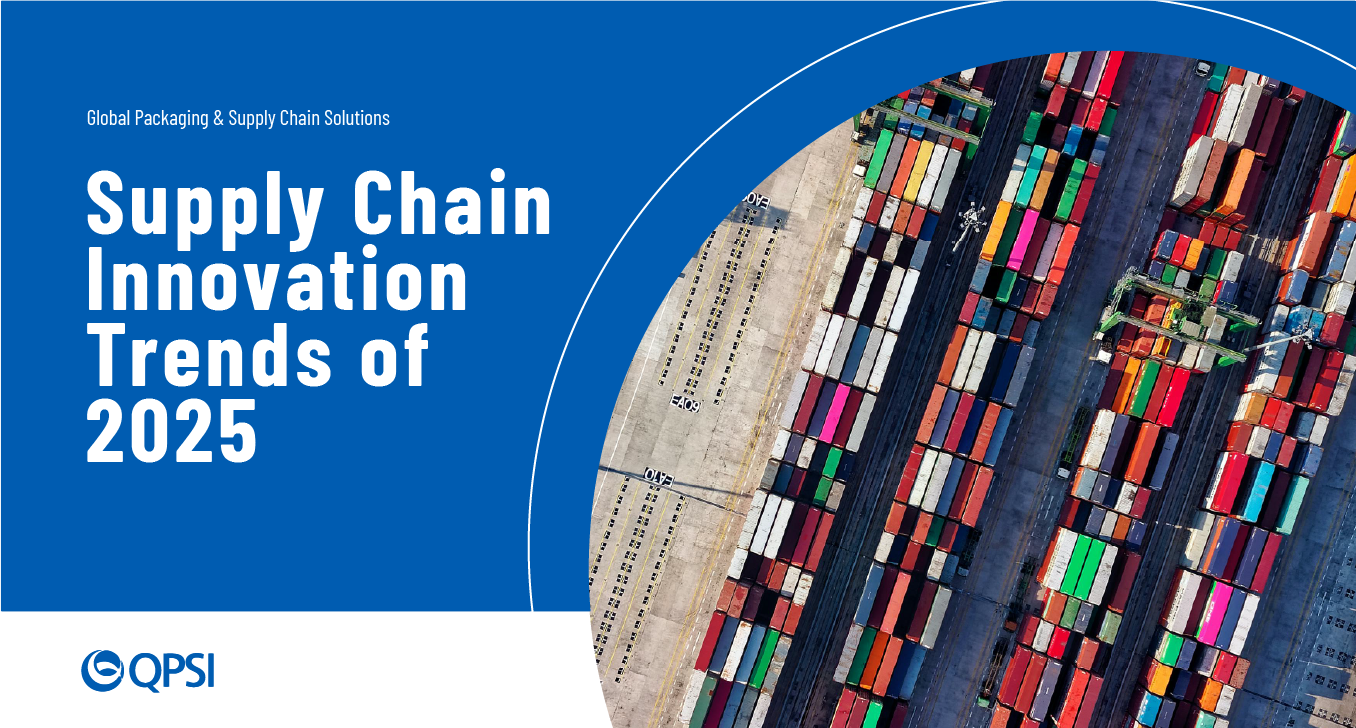As businesses continue to navigate a rapidly evolving global marketplace, supply chain innovation is a key area of focus for leaders and industry professionals alike. In 2025, supply chains are not only becoming more efficient but also smarter, more sustainable, and adaptive to emerging technologies. Companies that keep pace with these innovations are positioning themselves to stay ahead of the competition. Below, we explore the key supply chain innovation trends that are expected to shape the industry in 2025, and how QPSI (Quality Packaging Services International) is adapting to them. Reach out to us for supply chain consulting.
Top Supply Chain Innovation Trends Predicted for 2025
-
Artificial Intelligence and Machine Learning Integration Artificial intelligence (AI) and machine learning (ML) are no longer futuristic concepts; they are integral to supply chain optimization. These technologies are being used for predictive analytics, inventory management, and process automation. With AI-powered algorithms, companies can forecast demand with greater accuracy, automate tasks like order picking and packing, and improve logistics efficiency by analyzing real-time data.
-
Blockchain for Transparency and Security Blockchain technology is revolutionizing supply chains by enhancing transparency, traceability, and security. This is particularly crucial in industries like pharmaceuticals, food safety, and luxury goods, where authenticity and regulatory compliance are critical. Blockchain allows for real-time tracking of products from raw materials to end users, providing a transparent, tamper-proof record.
-
Sustainable Supply Chain Practices Sustainability is increasingly becoming a top priority for businesses across all sectors. In 2025, supply chain innovations are focusing on reducing environmental impact, from carbon footprint tracking to the use of renewable energy in manufacturing and transportation. Companies are also exploring circular supply chains, where products are designed for reuse, recycling, or remanufacturing.
-
Last-Mile Delivery Innovation As consumer expectations for faster, more reliable deliveries continue to rise, last-mile delivery is an area of intense innovation. The integration of drones, autonomous vehicles, and local distribution hubs are expected to become more prevalent in 2025. These advancements aim to reduce delivery times, lower costs, and increase efficiency.
-
Autonomous Warehousing Solutions The concept of autonomous warehouses, powered by robotics and automated guided vehicles (AGVs), is gaining traction. These technologies are transforming the way products are stored, sorted, and shipped. In 2025, more companies are expected to adopt robotics to handle tasks such as picking, packing, and sorting, significantly reducing human error and increasing throughput.
Why These Trends Matter
Each of these trends reflects a broader shift in how companies view their supply chains. Today’s supply chain is not just a cost center but a strategic asset that can drive business growth, customer satisfaction, and operational efficiency. By embracing AI, blockchain, sustainability, and automation, companies can improve their agility, reduce risks, and deliver greater value to their customers.
Furthermore, these innovations help companies meet the ever-growing demand for speed, efficiency, and transparency. Consumers and businesses alike are expecting more visibility into where products come from, how they are made, and the environmental impact of their production. As such, adopting these trends is not just a competitive advantage; it’s becoming a necessity for staying relevant in an increasingly complex and demanding market.
What’s Next?
Looking ahead, the future of supply chain innovation is incredibly exciting. We are at the intersection of numerous advancements, from quantum computing to 5G connectivity, all of which will further enhance supply chain capabilities. As these technologies evolve, companies will have the opportunity to drive even greater efficiencies, reduce costs, and deliver a more seamless experience for customers. Count on us for packaging project management and more services to make your process efficient.
For QPSI, the journey of innovation is ongoing. We are committed to continually evolving our operations to meet the changing needs of our clients and the market. Contact us today.
Key Takeaways:
-
AI and Machine Learning will continue to shape supply chain optimization with predictive analytics and process automation.
-
Blockchain is enhancing supply chain transparency and security, particularly in highly regulated industries.
-
Sustainability remains a top priority, with companies focusing on reducing environmental impact through eco-friendly practices and circular supply chains.
-
Last-mile delivery innovations, including drones and autonomous vehicles, will help meet consumer expectations for faster, more efficient deliveries.
-
Robotics and Automation in warehouses are transforming supply chain operations, increasing productivity and reducing human error.
-
By staying agile and embracing change, QPSI will continue to lead the way in supply chain innovation.





